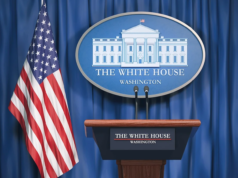![]()
Some of the biggest players in the technology industry have teamed up to fight back against the Federal Communications Commission’s (FCC) proposed net neutrality rules. Amazon, Google, Facebook, and many others have written a joint letter to the FCC stating that the changes could destroy the Internet as we know it.
Net neutrality, the idea that all Internet traffic should be treated equally by Internet service providers (ISPs), has been a topic of debate in the electronics industry for several years. In the past, the Federal Communications Commission (FCC) attempted to introduce a set of net neutrality laws that would help to prevent ISPs from obstructing Internet traffic, however an appeals court has struck down those rules.
Without the open Internet laws to protect the industry, the FCC has been forced to come up with a new plan, which many people fear will hurt the Internet. U.S. senators, members of the tech community, and even FCC commissioners are not entirely happy with the FCC’s plan, which would allow for an Internet fast lane.
Fighting Back
Outside of the telecommunications industry, there are very few organizations that support the FCC’s proposal. With a vote on the proposal set to take place on May 15, numerous critics are coming out to fight back against the new rules.
Tech companies are not alone in urging the FCC to change its position. This week, some FCC members showed their disapproval of the way that FCC Commissioner Tom Wheeler is handling net neutrality. At the very least, Commissioner Jessica Rosenworcel hopes that the commission will delay a vote on the matter.
In their letter to the FCC, Amazon, Google, and others said that any regulation of the industry should prevent discrimination and price increases, rather than formalize a discrimination process.
Slow Content, Not Blocked
The official FCC net neutrality proposal has yet to be released but reports on its content have already begun to surface. The rules would re-instate some aspects of the 2010 Open Internet Order, which established rules requiring transparency and prohibiting blocking and unreasonable discrimination to protect Internet openness. But they would also allow deals to be made between ISPs and content providers. Those deals would result in some data being transmitted faster than the data from the rest of the Internet.
One of the few rules that will be carried over from the Open Internet Order prevents ISPs from outright blocking content, but the new laws say very little about allowing some content to be slower than the rest. There are concerns, however, regarding extra deals between edge providers — providers of Internet services like Netflix and YouTube — and ISPs. In fact, even the FCC didn’t think that an Internet fast lane was a good idea in 2010.
In its Open Internet Order, the FCC said that allowing ISPs to charge edge providers for faster connections could cause ISPs to purposely congest networks. By allowing congestion to build up, the FCC felt that ISPs would then be able to make deals with more content providers.
However, now that the FCC has a new commissioner — who was previously a lobbyist for the cable industry — the organization seems to have a different view on net neutrality.
NewsFactor Network







